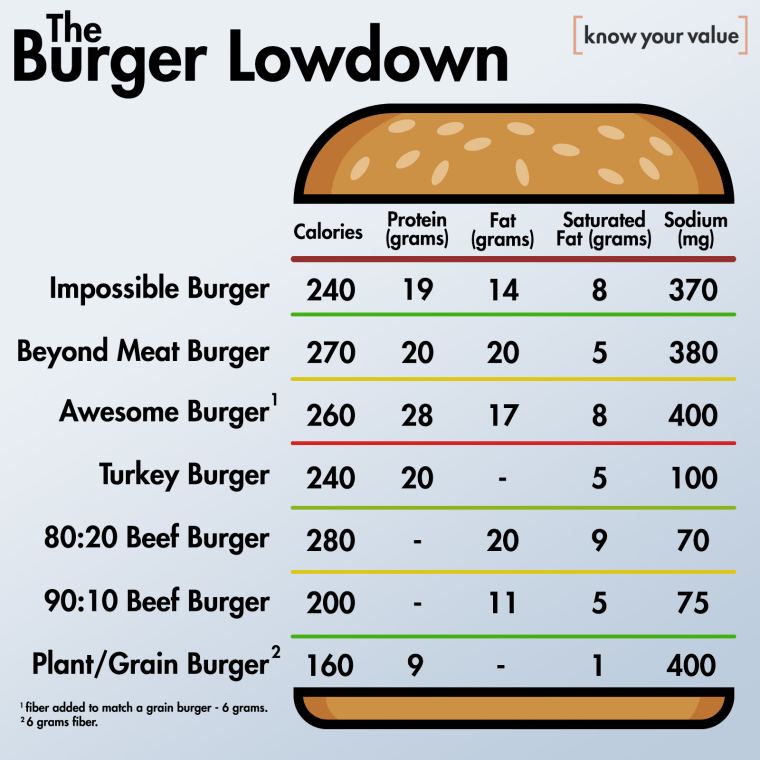Meatless meat is making a big comeback.
With companies like Impossible Burger, Beyond Meat and the recently-launched Awesome burger making major headway at high-end grocery stores and fast food joints alike, there’s a lot of confusion about which one to pick — and how healthy these items really are.
When most of us hear the word “meatless” or “plant-based” in a food product, we automatically think of a healthier, more environmentally sustainable choice. While there’s a lot of truth to this concept, there’s no “nutritional regulation” for these terms.
Americans are faced with many “health food halos” – products that sound healthy, but when you take a closer look at the nutrition profile, may not actually be delivering what you expect. These meatless burgers fall into this category. That’s because they aim to replicate the taste of beef, not a plant. That’s not an easy task.
Plant-based burgers are not a new concept and have been around for many years. They’re made of plants – grains, legumes (like soy and lentils), and a variety of other vegetables. While there are many exceptions, they are notoriously known for “tasting bad”, so many people avoid them altogether.
But when it comes to the new meatless burgers that taste “just like meat,” it’s important to remember it takes a lot of ingredients and food processing to replicate the taste. In fact, these products, according to the new NOVA food classification, which looks at level of food processing, fall under the “ultra-processed” category. That means they contain at least five ingredients (usually more), and many added ingredients, like sugars, salts and fats, along with other modifications of food ingredients.
Take a look at this side-by-side comparison of meatless burgers, along with a real, beef burger. Generally, the protein amounts live up well for the meatless burgers, but the sodium is much higher, and the saturated, artery clogging fat matches the real thing. Meatless burgers are also often fortified with vitamins and minerals, to boost the nutrient content to more closely match what is normally found in beef (like iron, B vitamins, and zinc).

You might be surprised to see so much saturated fat in a plant-based burger – it comes from added coconut oil for flavor. And while the plant and grain burgers have less total protein, it’s a double-duty nutrient boost with 6 grams of naturally-occurring fiber, about 25 percent of your daily need.
So what’s the bottom line?
The health message to “eat more plants” is a good one. And a meatless burger can be part of your diet if you choose. But make it just one of many protein sources you eat, and recognize that it takes a lot of ingredients and processing to get that meaty taste.
Stick with whole, real foods as much as you can while limiting processed foods of all kinds. When it comes to eating, everything in moderation – including treats - remains the gold standard.
Madelyn Fernstrom, Ph.D. is the NBC News Health Editor. Follow her on Twitter @drfernstrom.
